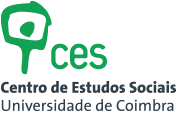Seminário | IX Ciclo Anual Jovens Cientistas Sociais
Espanha e a revolução portuguesa: os limites duma imprensa vigiada
Rita Luís (Universitat Pompeu Fabra, Barcelona /Instituto de História Contemporânea da Universidade Nova de Lisboa)
22 de janeiro de 2014, 17h00
Sala 1, CES-Coimbra
Comentadoras: Manuela Cruzeiro e Marina Galvanese
Resumo
A revolução portuguesa de 1974-1975 deixou uma marca importante na imprensa espanhola (Sánchez 1993; Cordero 2010). Não apenas pela extensão da atenção que lhe foi dedicada, como também pela oportunidade que o debate à volta deste acontecimento constituiu para a discussão de muitas das questões próprias daquele país.
No entanto, nesta ocasião pretende-se abordar o que se considera os bastidores desta cobertura jornalística. Entendendo-se por bastidores as contingências políticas e informativas que rodeiam a produção de notícias pela imprensa espanhola durante este período. Mais concretamente trata-se de observar as condições materiais em que o discurso jornalístico espanhol sobre o processo revolucionário português é produzido.
Na sua relação com a cobertura da revolução, tais contingências podem resumir-se em três questões principais: a própria estrutura do sistema informativo espanhol, que privilegiava os media oficiais; o papel do Ministério de Informação e Turismo (1951-1977) no acima mencionado sistema; e, por último, algumas práticas de contorno do mesmo sistema, instigadas pelo desejo de informação sentido no interior do território espanhol, que ajudam a colocar em perspetiva o peso que tal sistema de informação poderia ter para a sociedade espanhola.
CORDERO, Inmaculada (2010) "«Lo que no debe ser». La revolución Portuguesa en la prensa española" in ROSAS, Fernando, LEMUS, Encarnación and VARELA, Raquel (coord.) El Fin de las dictaduras ibéricas, 1974-1978, Sevilla: CEA/Lisboa: Edições Pluma, pp.63-86.
SÁNCHEZ CERVELLÓ, Josep (1993) A Revolução Portuguesa e a sua influência na transição Espanhola (1961-1974), Lisboa: Assírio e Alvim
Nota Biográfica
Rita Luís é doutoranda no departamento de Comunicação da Universitat Pompeu Fabra em Barcelona. Membro do Grup de Recerca en Periodisme da mesma Universidade; participou no projeto de investigação Notícias Internacionales de España en la Transición (2010-2012) e, atualmente, no projeto El papel de la prensa diaria en la transición democrática. Cobertura informativa y comportamiento político de periódicos y periodistas (2013-2015). É igualmente investigadora integrada do Grupo Poder, Ideias e Cultura e colaboradora do Grupo de Estudos do Trabalho e dos Conflitos Sociais do Instituto História Contemporânea. Prepara uma dissertação sobre a Revolução Portuguesa de 1974-1975 e a imprensa Espanhola.

